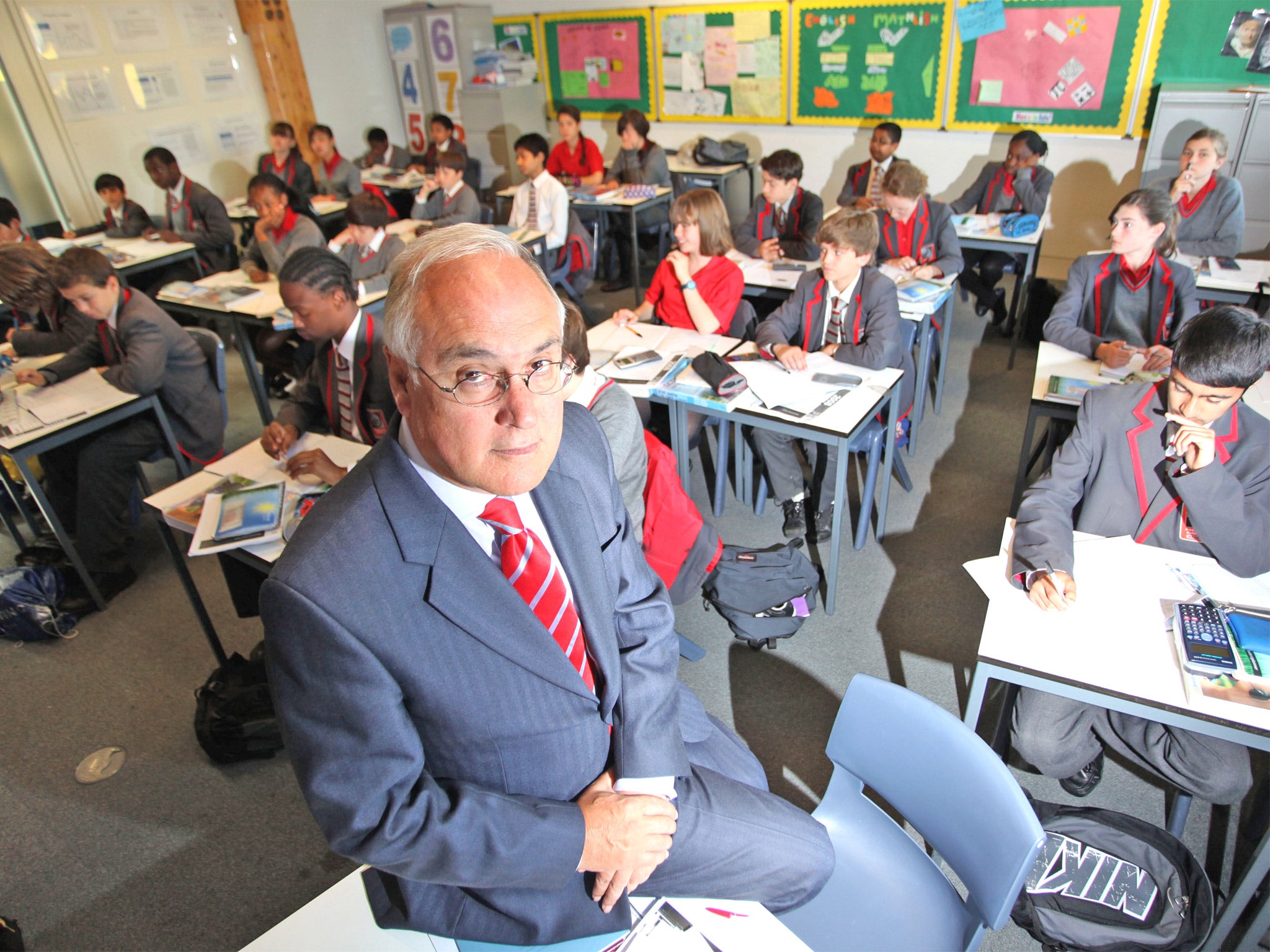Bright pupils cheated by ‘lack of scholarship’ in schools
The average pupil loses 38 days of teaching a year due to disruption in the classroom

Your support helps us to tell the story
From reproductive rights to climate change to Big Tech, The Independent is on the ground when the story is developing. Whether it's investigating the financials of Elon Musk's pro-Trump PAC or producing our latest documentary, 'The A Word', which shines a light on the American women fighting for reproductive rights, we know how important it is to parse out the facts from the messaging.
At such a critical moment in US history, we need reporters on the ground. Your donation allows us to keep sending journalists to speak to both sides of the story.
The Independent is trusted by Americans across the entire political spectrum. And unlike many other quality news outlets, we choose not to lock Americans out of our reporting and analysis with paywalls. We believe quality journalism should be available to everyone, paid for by those who can afford it.
Your support makes all the difference.A lack of “scholarship” in secondary schools is ruining the prospects of the country’s most able pupils, the education standards watchdog has warned.
Ofsted’s annual report revealed almost two-thirds of pupils in comprehensive schools who scored highly in English and maths tests as 11‑year-olds failed to get an A* or A grade pass in the subjects at GCSE. One in four did not even get a B grade.
Sir Michael Wilshaw, the chief schools inspector, said: “Imagine how dispiriting it must be for a child to arrive at a secondary school bursting with enthusiasm and keen to learn – only to be forced to repeat lessons already learnt and endure teaching that fails to stimulate.”
Sir Michael linked the “lack of scholarship” to worsening pupil behaviour in schools: the proportion of schools where behaviour and safety was judged good or outstanding fell 7 percentage points between 2012/13 and 2013/14. “This means that over 400,000 pupils attend a secondary school where behaviour is poor,” added the report.
“Inspectors found far too many instances of pupils gossiping, calling out without permission, using their mobiles, being slow to start work or follow instructions, or failing to bring the right equipment to class.
“While these are minor infractions in themselves, cumulatively they create a hubbub of interference that makes teaching and learning difficult and sometimes impossible.”
Inspectors estimated the average pupil lost 38 days of teaching a year because of disruption in the classroom.
The number of failing secondary schools was up by 50 on the previous year, the report said. In all, 170,000 pupils were taught in inadequate secondary schools – 70,000 up on two years ago.
Sir Michael backed the stance of the Bradford head who was criticised for sending 150 pupils home for uniform infringements dubbed “minor” in the media.
“All she was doing was reminding children, and just as importantly their parents, that there were rules and that if youngsters wanted to study at her school they had to abide by those rules,” he said.
The report also criticised sixth-form provision, saying: “Where sixth-forms are very small, they frequently offer too narrow a range of subjects or teach those subjects poorly.
“Students in small sixth-forms achieve considerably poorer results than those in larger sixth-forms.”
Join our commenting forum
Join thought-provoking conversations, follow other Independent readers and see their replies
Comments